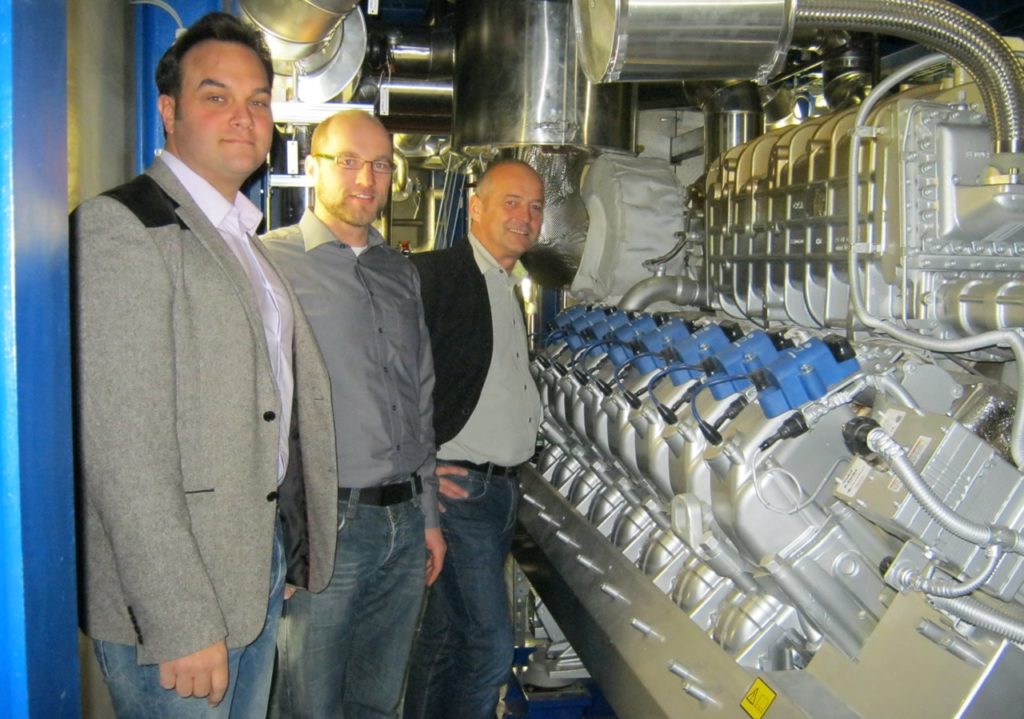Equally large is its energy demand, in the form of power, process heat and cooling. These are crucial factors in the production of beer. “We are always scrutinising new or modified energy supply processes to save money and reduce the impact on the environment. The newly constructed cogeneration plant is a milestone in the brewery’s strategy to practise sustainability and preserve resources,” explains Ludwig Metz, Technical Manager. A new cogeneration and optimum composite system was designed following a study by the engineering office H. Moroschan based in Muhr am See.
The heart of the system is an MTU generator set with a nominal electrical output of 2.0 MW. Natural gas is used first and foremost as the fuel and the biogas obtained from the company’s own wastewater treatment plant is also used. This generates a volume of approximately 11.4 million kWh per year, which is almost immediately completely consumed in the company. It meets almost half of the brewery’s annual electricity requirement.
A waste heat steam boiler, produced by Gunzenhausen-based Bosch-Thermotec, is installed downstream on the exhaust gas side, which produces a maximum saturated steam output of 1.19 tonnes/hour – corresponding to 880 kW – to support the existing steam supply in the brewery’s brewhouse. This generates approx. 15% of the total steam requirement. There is also a further 220 kW exhaust gas heat exchanger installed, which achieves exhaust gas temperatures of less than 80 °C. The heat can be used flexibly, depending on the demand, to provide hot water or support the absorption chiller.
Motor waste heat at 90 °C supplies the heat requirement for a new absorption chiller with an output of approx. 950 kW, which reduces operational running times for the existing compression chiller.
The newly installed re-cooling system is designed for an output of 2 x 1,400 kW. The absorption chiller meets approx. 20% of the brewery’s cooling requirement.
The complete power-steam/cooling co-generation plant has an outstanding total efficiency of more than 90%, which saves approximately 2,750 tonnes of CO2 per year with optimum primary energy use compared to drawing power from the mains. The OeTTINGER Brewery is thus once again making a major contribution to environmental protection. This is a sensible investment from an operational efficiency point of view as well, as the system will pay for itself in just under three years.
They key cost-saving and investment figures are generally very good if a composite system (power-heating/cooling cogeneration plant) is precisely matched to a company’s specific energy demand curve. Sensibly designed storage tank facilities also play a key supporting role.
The project was successfully completed within six months with technical support from the approval authority, the Danube-Ries District Office, and the companies who played a major role in the project:
- IHM – Ingenieurbüro Harald Moroschan, Muhr am See
Design, Specification and Site Management - Sell GmbH, Helmbrechts
Overall system construction and project management
